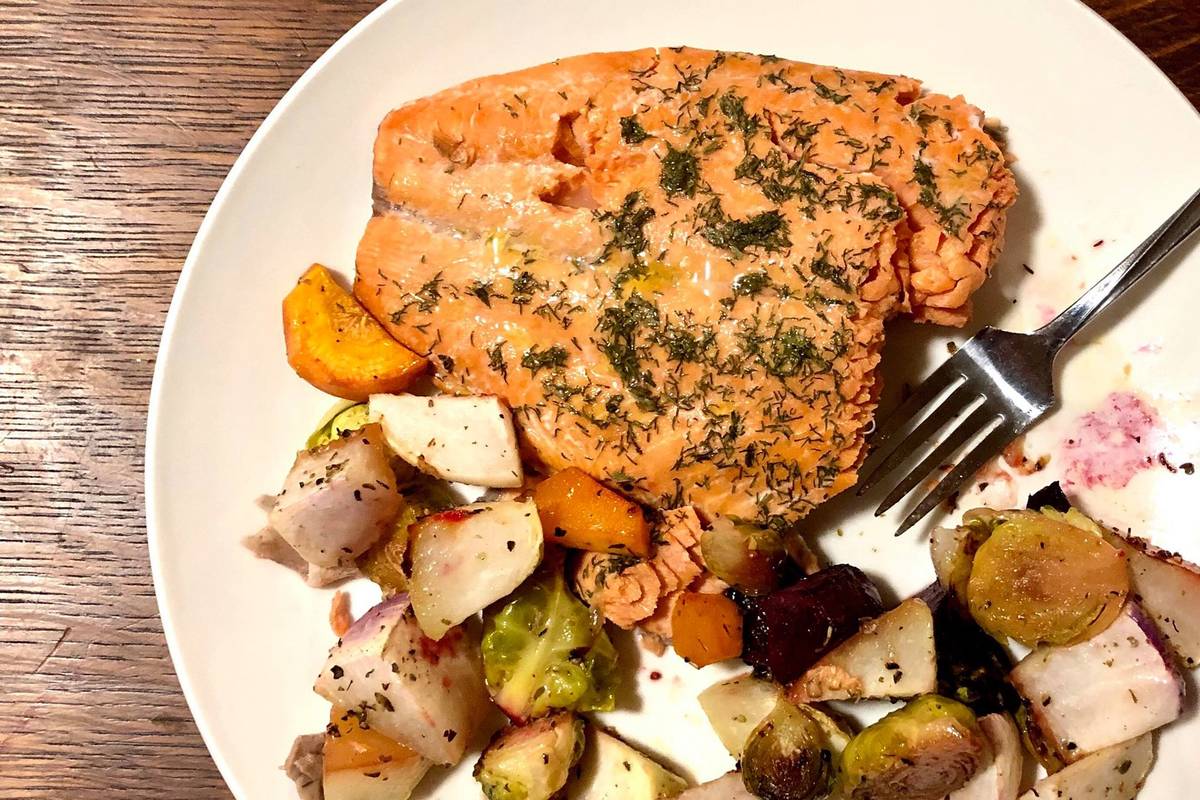Wednesday evening, everything on my dinner plate was either caught in Alaska or grown in Alaska.
The last of the kohlrabi and turnips, a single carrot, some beets and a handful of brussel sprouts were roasted to perfection with olive oil, lemon juice, salt and pepper.
The salmon fillet was thawed and ready to be released from its plastic, vacuum-packed cocoon and metamorphose into the home-cooked meal I’ve been daydreaming about all day, maybe even all month.
It’s been so long since I’ve had salmon. It’s probably only been a couple of months, but that seems like a long time for Alaskans, especially for those of us living on the Kenai Peninsula.
Eating salmon is a balance of indulgence and self-control. What if we eat it all before January? What if we’re drowning in uneaten, potentially freezer-burned salmon come July?
In its summer abundance we enjoyed it regularly, but now that fall is settling in, our supply waits in the freezer for those dark and cold days when we crave the taste of endless sunshine and memories of fishing.
Last night’s salmon was processed by family. My boyfriend, Nate, and I got to the makeshift fish camp on my aunt’s lawn in Nikiski just as they were finishing up. We both had to work, but were still able to help clean up and reap the rewards.
My parents and grandma, aunts and uncles all came down to get their fish this summer. They are originally from the Kenai Peninsula, but most live in Anchorage now.
Many of our friends from Anchorage came to visit us this summer to fish, too. Our gravel driveway, garden hose and trusty vacuum sealer were combined to create a small fish-processing operation by friends from across the state who came to dip their nets into the Kenai or Kasilof.
Every night, no matter the day of the week, friends were camping on our lawn, borrowing our nets or packing their catches into their coolers for the drive north to Anchorage. Every night, salmon was on the menu to be shared among friends.
Today, the days are shorter. We get few visitors this time of year. Our hose is rolled up for the winter and the nets will be stored away in time for snow. The temperatures are freezing, much too cold to host campers on the lawn. Our gravel driveway, where we invited friends to clean their fish and eat dinner with us, is going to be covered up for months by a deep blanket of snow.
And our salmon, which we have carefully washed and packaged, is sitting frozen solid waiting for the day we decide to indulge in summer memories and pleasures. Hopefully there’s enough to last until next summer.

